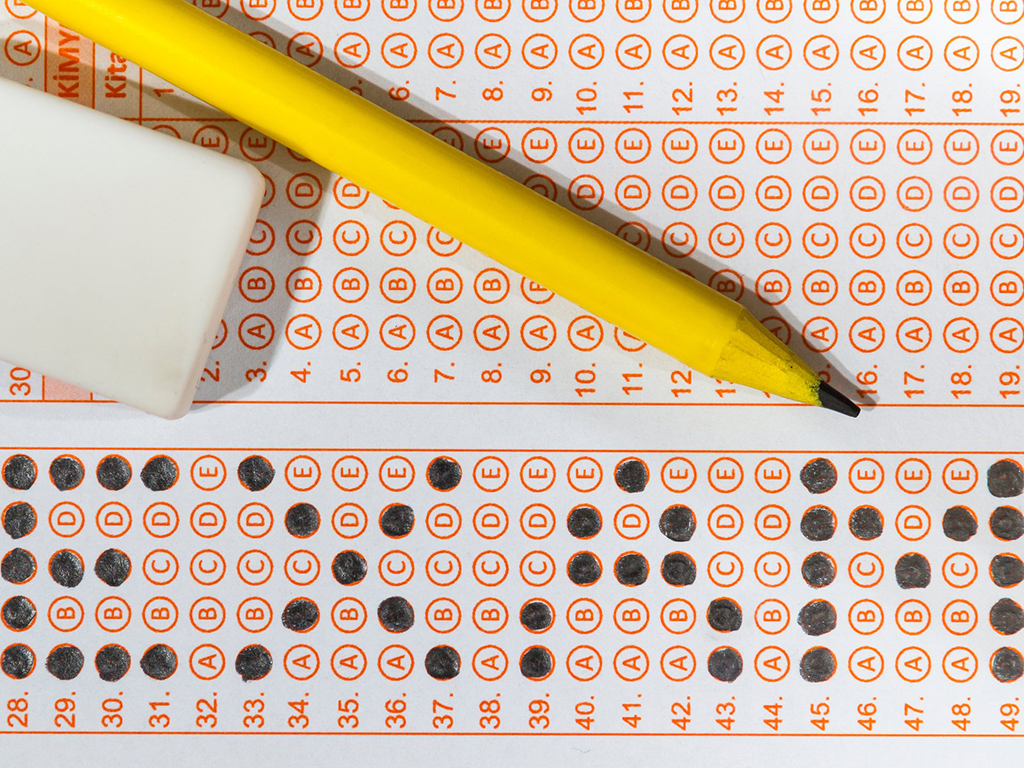By Sherry Karabin
The bar exam is the price of admittance for those who want to practice law, and passing the dreaded exam, particularly on the first try, is far from a given.
In 2019, statistics show, 79.6% of first-time test-takers passed the bar in their states. That means more than 20% of law grads failed, and that’s a big number given how much time and money they had invested.
When Paul Caron became dean of Pepperdine Caruso School of Law in Malibu, Calif., in 2017, improving the school’s bar passage rate was a top priority.
“Historically our students had done much better on the California bar exam than their incoming LSAT scores and undergraduate GPAs would have predicted,” Caron said. “But around 2015, we had begun to see a slump.”
In an effort to turn things around, Caron hired a new director of academic excellence to expand the school’s bar prep efforts and provide additional support and mentorship to students.
And it worked. The school’s bar passage rate went from 87.2% within two years of graduation in 2015 to 91.4% within one year of graduation in 2018.
“While it helps to have entering 1Ls with top LSAT scores and undergraduate GPAs, there is also a definite correlation between how well a school prepares its students and the school’s bar passage rate,” Caron said.
Indeed, a recent study by Jeffry Kinsler, founding dean of Belmont University College of Law in Nashville, Tenn., confirms the important role schools play in their students’ ability to pass the bar.
Using linear regression models — translation: serious math — Kinsler and his colleague, professor Jeffrey Usman, assessed the performance of graduates from 187 ABA-approved schools for a five-year period (2015-19) to determine which schools were providing the most bar-passage value to their students. (Twenty schools were excluded because of missing or inconsistent data.)
“Statistically, students with higher UGPAs and LSAT scores are more likely to pass the bar exam,” Kinsler said. “Based on that premise, a predicted bar passage rate can be calculated.”
They went on to compare each school’s predicted bar passage rate to its actual rate to determine which schools overperform on the bar exam.
The study used four metrics to assess a law school’s performance for each of the five calendar years: median LSAT and composite average first-time bar passage rate; median UGPA and composite average first-time bar passage rate; median LSAT and composite average first-time time bar pass rate differential; and median UGPA and composite average first-time bar pass rate differential.
An average annual rank was calculated based on the school’s performance during the five-year period.
The results contain surprises on the high and low end of the spectrum, with e-Belmont Law taking first place, followed by Florida International University College of Law in Miami; Liberty University School of Law in Lynchburg, Va.; Campbell University, Norman Adrian Wiggins School of Law in Raleigh, N.C.; and Texas A&M University School of Law in Fort Worth.
Of the 187 schools, Belmont Law was the only one to make the top 10 list for each of the five calendar years. It took first place in 2015 and 2019 and received an average an annual rank of 3.6.
It’s no coincidence that the author of the study is from the top school.
“I suspected we could be No. 1, and the data, which is public and available to anyone who chooses to access it, proved my assumption,” Kinsler said.
In 2019, Belmont’s bar passage rate for first-time test-takers was 96.25%. That’s really good.
“I have always believed that passing the bar has more to do with teaching students how to apply the law, which Belmont does very well,” Kinsler said.
Belmont Law offers a traditional curriculum that emphasizes the fundamentals of law. But it also requires students to take a third-year bar-preparation course, which Kinsler teaches.
He said the course “shows them how to apply the law to different situations that may be presented on the bar exam.”
Alberto R. Gonzales, dean of Belmont Law, said he’s pleased but not surprised by the results of Kinsler’s study. He said he believes it will help recruit students with higher LSAT scores and undergraduate GPAs.
“When you consider the variables involved in the selection of a law school, there is no question that bar passage rates make a difference,” Gonzales said. “Given the cost of attendance, students want to know they can graduate law school, pass the bar and get a job.
“There are three law schools from which to choose in Nashville, and while we may not yet have the same national reputation as Vanderbilt, we do fill an important niche by producing well-prepared grads who often take jobs here in Nashville. We think of ourselves as Nashville’s law school, and hopefully as our reputation grows, we will be even more of a presence here in the southeast region of the country and beyond.”
The recent bar passage study is an expanded version of an earlier one that Kinsler and Usman did in 2015. Titled, “Law Schools, Bar Passage, and Under and Over-Performing Expectations,” it was published in the Quinnipiac Law Review in 2018.
The top five law schools in that study were: Belmont Law; Georgia State University College of Law in Atlanta; University of Oklahoma College of Law in Norman, Okla.; Florida International University and Campbell Law.
“Our previous study was a snapshot, and we wanted to be sure it wasn’t a fluke,” Kinsler said. “This study contains five years’ worth of data, so we know the numbers do hold up.
“Most of the top performers have an experienced faculty member in charge of bar preparation, like professor Raul Ruiz at Florida International.”
Kinsler said the top schools have one other thing in common: They’re relative newcomers to legal education, which he said is not a coincidence.
“These schools likely do not have the legacy problems that are built into older schools and are probably more open to making changes to curriculum and teaching methods,” he said.
Liberty Law, which ranked third in Kinsler’s five-year study, is one example of this. Dean Keith Faulkner said the law school, which was founded in 2004, emphasizes bar preparation right from the beginning.
“Even before the start of classes, our incoming 1Ls attend a two-week orientation, which includes a discussion about our bar prep programs,” Faulkner said. “We also partner with Barbri (a leading bar prep company), which allows us to tailor the bar prep programs based on a student’s needs.”
Rena Lindevaldsen, director of the bar preparation program at Liberty Law, said student performance is continuously monitored to determine strengths and weaknesses and to offer any additional help that might be needed.
“We stress strong legal writing and analysis skills,” Lindevaldsen said. “Some 3Ls are required to take a mandatory advanced research and writing course that includes writing a judicial opinion, an affidavit, the argument section of a brief and either a complaint or memorandum. Students write 14 essays for this course alone.”
Fourth-ranked Campbell Law takes a multi-pronged approach to preparing students for the bar exam.
Dean J. Rich Leonard said that unlike at some law schools, two-thirds of a student’s curriculum at Campbell is made up of required courses in substantive areas that are tested on the bar exam.
“We are a school that is laser-focused on bar passage,” Leonard said. “That’s why I was not terribly surprised by our high rank on this study. We do a great job teaching our students, and we usually match or exceed the bar passage outcomes of the University of North Carolina, Duke and Wake Forest, whose students often have much higher LSAT scores than ours. We are very proud of our record.”
While Pepperdine University was ranked No. 170 overall in the five-year study, Kinsler said the school is on an upswing and came in at No. 82 for 2019.
Selina Farrell, director of academic excellence at Pepperdine, said she believes recent changes, including a mandatory two-credit bar exam workshop, which is mandatory for students with lower GPAs, will continue to yield promising results.
“In 2018, we had close to a 100% enrollment (in the workshop) among our graduating 3Ls,” Farrell said. “We changed the class from a pass-fail system to a graded system as well, which provides additional incentives for students to excel.”
Meanwhile, Kinsler said, underperforming schools appear to have little in common.
“Although most are lower-tier law schools, they are geographically diverse,” Kinsler said. “While several are located in states with low bar passage rates, like California and Michigan, most are located in states that have above-average passage rates. Only four of the bottom 15 are public. The rest are private law schools.”
One of the biggest surprises was Northwestern Law, Kinsler said. The T14 school ranked 175th.
Don Rebstock, associated dean of admissions and career services at Northwestern University Pritzker School of Law, issued the following statement in response to its ranking:
“Throughout our history, the bar passage rate of Northwestern Pritzker School of Law graduates has consistently been among the nation’s highest. This study includes 2016 results, which, for us, were an anomaly.”
Northwestern’s bar passage rate was 82% that year.
Except for that year, the bar passage rate of our graduates for at least the past 25 years has always exceeded 90%, Rebstock said.
Given that students sometimes apply to multiple law schools and may be accepted by more than one, Kinsler advises those shopping for the best fit to consider an institution’s bar passage rate.
“Once a prospective law student has narrowed down his or her choices, my advice is to select the law school that provides the best chance of passing the bar exam,” he said. “After all, you can’t practice law without passing the bar.”


